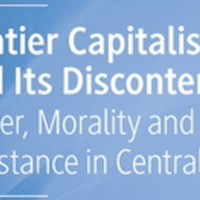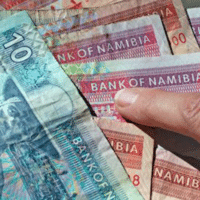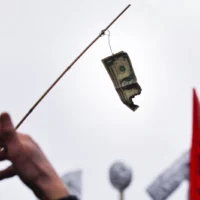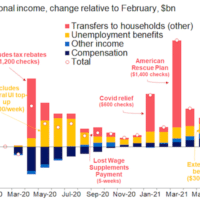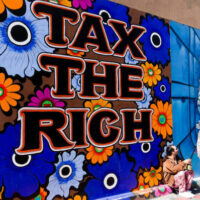-
Mother Nature, Inc.
Wall Street investors have hit the jackpot. Soon they’ll be able to buy, own, and dictate The Commons, public lands, the world of Mother Nature.
-
Carbon tax over-rated
Addressing global warming requires cutting carbon emissions by almost half by 2030! For the Intergovernmental Panel on Climate Change, emissions must fall by 45% below 2010 levels by 2030 to limit warming to 1.5°C, instead of the 2.7°C now expected.
-
Will Glasgow fix broken climate finance promises?
SYDNEY and KUALA LUMPUR: Current climate mitigation plans will result in a catastrophic 2.7°C world temperature rise. US$1.6–3.8 trillion is needed annually to avoid global warming exceeding 1.5°C.
-
Economic inequality means retirement insecurity for most U.S. households
This is far from a “hot take”: financial wealth in the United States is highly concentrated, with most households, especially Black and Hispanic households, owning few financial assets
-
Dossier No. 46: Big Tech and the current challenges facing the class struggle
We cannot give ourselves the luxury of being technophobic, of negating the importance of technologies and their potential in the struggle. At the same time, we cannot believe in the idea that technology in itself will result in advances for the organised working class.
-
Right-wing Democrats gut social program budget after Biden refuses to fight
After spending weeks conducting backroom negotiations with Sen. Joe Manchin, Sen. Krysten Sinema and other right-wing Democrats in Congress over the social program budget, the Biden administration announced yesterday a “framework” that abandons some of the most important elements of the original proposal.
-
Mexico’s AMLO blasts IMF for causing global crisis, after Fund takes aim at his energy policy
The IMF caused social and economic decadence in the world; they and other international financial organisations are responsible for the global crisis.
-
Bagels, grapes and marijuana: a day in the country
The bagels at Homegrown are some of the best in northern California, in part because the owner, Stuart Teitelbaum, who was born and raised in Manhattan on the Lower East Side, and grew up eating bagels and bialys.
-
Central Asia’s neoliberal tragedy
Resilience cannot be restored without public spending, but the rentier business plan is to minimize taxes by shrinking the government, especially by privatizing its public utilities and other functions to create opportunities for charging monopoly rents, and to oppose taxation of economic rent.
-
Globalization and its big data: the historical record in financial markets
In the 19th Century, “hypothecations” provided investors with valuable information on sovereign fiscal resources.
-
Where did the dependency approach go?
Many commentators and academics interested in African development have in recent decades shown a disinclination or disdain towards incorporating ‘global capitalism’ into their analyses of countries of the continent.
-
Cryptocurrency: a new and dangerous climate disruptor
The get-rich-quick scheme, banned in China and elsewhere, is invading U.S. communities unchecked, posing as an “equalizing, democratizing” currency. It’s not.
-
How the “debt ceiling” has been turned into a weapon against workers
Treasury Secretary Janet Yellen warned that the country is now just weeks away from hitting the debt ceiling.
-
The true cost of Ireland’s data centre boom
As People Before Profit prepare to introduce a Bill to Dáil Éireann which would ban new data centres in Ireland, Alexandra Day looks at the disasterous impact of these centres for the environment and communities.
-
Finance capital and the World Economy
THE period of neo-liberalism witnesses an increase in the share of economic surplus in total output both in individual countries and also for the world as a whole.
-
Pandora files link 14 latam presidents to offshore activities
Chile’s President Sebastian Piñera, Ecuador’s President Guillermo Lasso, and Dominican Republic’s President Luis Abinader are the active top politician implicated in the leak.
-
Pandemic economic woes continue, but so do deep structural problems, especially the long-term growth in the share of low wage jobs
Many are understandably alarmed about what the September 4th termination of several special federal pandemic unemployment insurance programs will mean for millions of workers.
-
Rapid shift to clean energy could save ‘trillions.’ But corporate-backed groups are fighting the transition in U.S. Budget Bill
Wind, solar, and batteries are already the cheapest source of electricity and an aggressive shift to clean energy makes more economic sense than a slow one, according to a new study. However, an enormous lobbying effort is underway to block climate policy in the $3.5 trillion budget bill under consideration.
-
Progressive taxation for our times
As developing countries struggle to cope with the pandemic, they risk being set back further by restrictive fiscal policies. These were imposed by rich countries who no longer practice them if they ever did. Instead, the global South urgently needs bold policies to ensure adequate relief, recovery and reform.
-
Buffalo’s developer class backing last-ditch attempt against socialist India Walton
A federal judge who wants Buffalo’s incumbent mayor back on the ballot is being scrutinized for his real estate ties.









